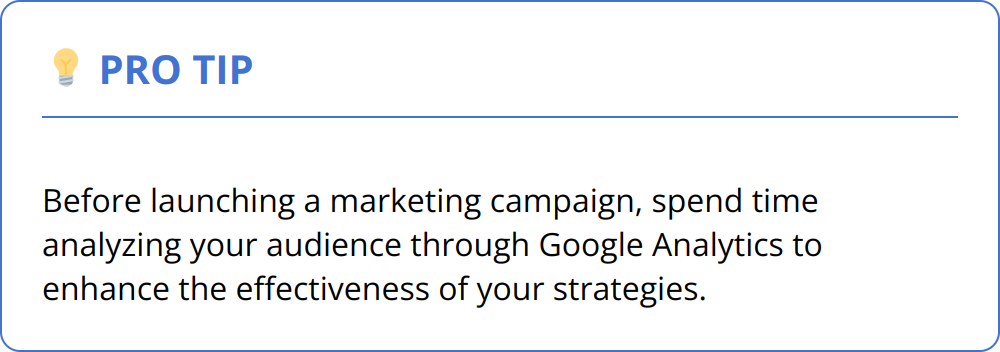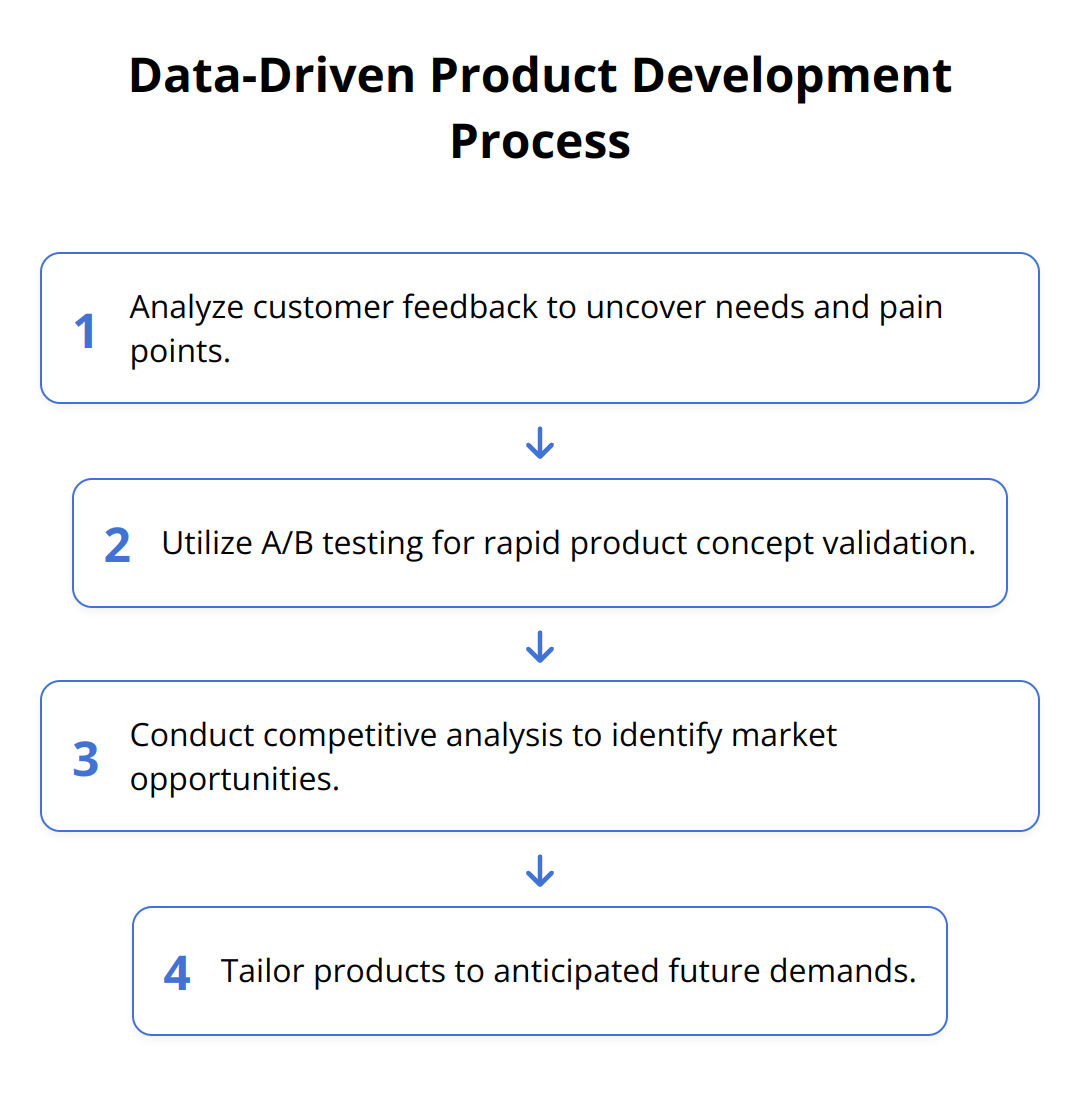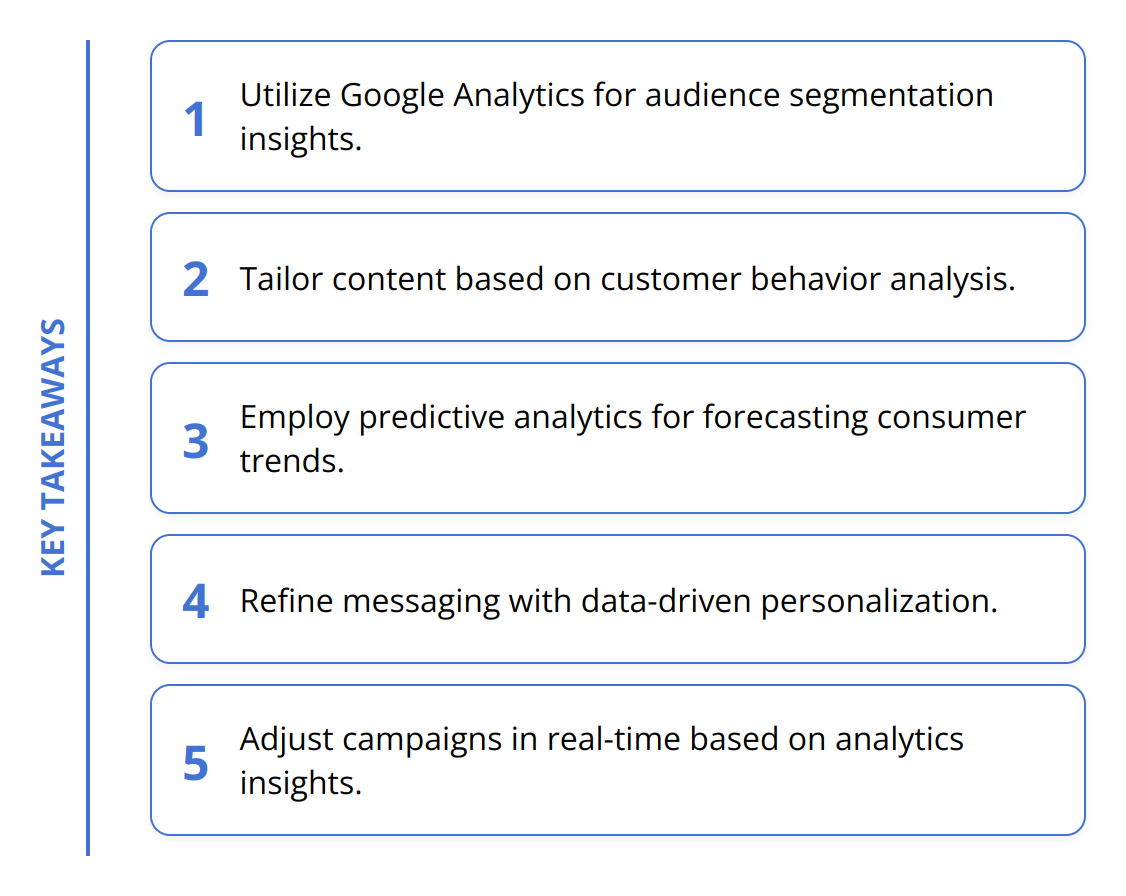Data analytics has transformed the landscape of marketing, providing insights that power strategic decision-making. By decoding customer data, businesses can tailor their marketing efforts for maximum impact and efficiency. We at Emplibot believe that understanding this transformation is key to staying ahead in a competitive market. This post will guide you through the essential ways data analytics can elevate your marketing strategy.
How Does Data Analytics Enhance Audience Understanding?
In the digital age, the power to understand and predict customer behavior is indispensable for crafting effective marketing strategies. Data analytics emerges as the cornerstone, enabling businesses to delve deep into the preferences, behaviors, and future needs of their target audience. Armed with data-driven insights, marketers can tailor their offerings and communication in ways that resonate profoundly with their audience, driving both engagement and conversions.

The first step towards leveraging data analytics is identifying your target audience. This involves analyzing demographic information, online behavior, and engagement across digital platforms. Tools like Google Analytics offer a wealth of data on website visitors, helping marketers to segment their audience based on various criteria such as age, location, and interests. By understanding who your audience is, you can make informed decisions about where to focus your marketing efforts for the highest impact.
Next, we delve into understanding customer behaviors and preferences. This goes beyond basic demographics and seeks to understand the why behind customer actions. By tracking how users interact with your website, what content they consume, and the path they take towards making a purchase, you can uncover valuable insights into what your customers want and how they prefer to be approached. Data analytics tools can highlight patterns and trends in customer behavior, enabling you to tailor your content and offers to meet their specific needs.

Predicting future trends and needs is the final piece of the puzzle. With predictive analytics, marketers can forecast upcoming trends, changes in consumer behavior, or emerging needs before they become mainstream. This predictive capability allows businesses to stay a step ahead, crafting strategies and products that meet their customers’ future needs, thereby establishing a strong competitive advantage.
For actionable insights on leveraging marketing automation data for better decision making, explore our comprehensive guide on analyzing marketing automation data.
Practical Takeaways:
-
Utilize Google Analytics to identify and understand your audience segments.
-
Analyze customer interaction data to uncover preferences and behaviors.
-
Employ predictive analytics to forecast future consumer trends and adapt your strategy accordingly.
By integrating these practices into your marketing strategy, you set the stage for more personalized, efficient, and forward-thinking campaigns that not only meet but anticipate the needs of your audience.
Optimizing Campaigns with Analytics
Data analytics not only opens the door to understand your audience but also equips you with the tools to optimize your marketing campaigns effectively. The journey from insights to action involves enhancing campaign targeting, improving ROI, and making real-time adjustments based on analytics insights.
When data analytics is applied to marketing campaigns, it fundamentally changes how decisions are made, leading to more targeted, personalized, and efficient marketing efforts. The ability to measure campaign performance with precision means resources are allocated more effectively, ensuring that marketing budgets are spent on the tactics that yield the highest returns.
Sharpening Campaign Focus
Data analytics enables marketers to refine their campaign targeting. The more you understand about your audience, the more tailored your messages can become, significantly increasing engagement and conversion rates. Personalization, powered by data, no longer means just using a customer’s name in an email but being able to predict what offers or content they are more likely to engage with, based on their past behavior and preferences.
For instance, consider an email campaign aimed at recent website visitors who didn’t make a purchase. Analytics can reveal not just who those visitors were, but what products they viewed, allowing for follow-up emails that feature those exact products, perhaps with a limited-time offer.

Boosting ROI with Analytics
One of the most compelling aspects of using data analytics in marketing is the ability to track and improve ROI in near-real-time. By setting up proper conversion tracking, marketers can see exactly which campaigns are driving sales, subscriptions, or other key actions, and adjust their spending accordingly.
Analytics tools can also reveal the customer journey, highlighting which touchpoints are most influential in driving conversions. This insight is invaluable in allocating marketing spend more effectively, focusing on the channels and tactics that offer the best return.
One practical step here involves A/B testing different elements of your campaigns, from email subject lines to landing page designs. Data analytics helps identify which variations perform best, allowing you to continuously refine and improve your efforts for higher ROI.
Real-Time Campaign Adjustments
The dynamic nature of digital marketing requires agility – the ability to respond quickly to changing circumstances and data. Real-time analytics dashboards provide a live view of how campaigns are performing, allowing marketers to make adjustments on the fly. If a particular ad is underperforming, it can be paused or adjusted. If a blog post is getting a lot of traction, additional resources can be allocated to promote it further.
The key here is not just having access to real-time data but being prepared to act on it. Speed is often of the essence; the faster you can respond to the data, the more effectively you can optimize your campaigns for success.
For more detailed insights on real-time analytics, check out our post on real-time analytics with AI.
Quick Tips:
-
Use data to refine and personalize your campaign messaging.
-
Continuously measure campaign performance to identify what’s working.
-
Leverage real-time data for agile campaign adjustments.
By embracing these strategies, marketers can not only improve the efficiency of their campaigns but also achieve significantly better results, ultimately leading to stronger customer relationships and improved business outcomes.
Enhancing Product Innovation with Data
Harnessing the power of data analytics extends beyond optimizing marketing campaigns; it also plays a pivotal role in product development and innovation. By analyzing customer feedback, market trends, and competitive landscapes, businesses can design products that not only fulfill existing demands but also anticipate future needs. Here’s how data analytics translates into actionable insights for product innovation.
Leveraging Customer Feedback for Insightful Product Development
Customer feedback is a goldmine for product development. Platforms like social media, customer reviews, and feedback surveys provide raw, unfiltered insights into what customers love, dislike, or wish to see improved. Analyzing this data helps identify patterns and pain points that might not be apparent from sales data alone.
For actionable steps on how to harness customer feedback, our guide on creating automated customer surveys offers practical advice.
Rapid Testing and Validation of New Ideas
In today’s fast-paced market, speed is everything. Data analytics facilitates the rapid testing and validation of new product ideas by leveraging A/B testing, customer surveys, and prototype feedback. Shortening the feedback loop means products can be iterated and improved quickly, minimizing the risk and cost associated with bringing new products to market.
Aligning Products with Market Needs
Understanding market demands goes beyond analyzing your own customer data. Competitive analysis, trend forecasting, and social listening can provide insights into where the market is heading and what gaps exist. Products tailored to fill these gaps or anticipate emerging trends can gain a significant competitive edge.
Incorporating data analysis in every stage of product development ensures that new products are not only based on gut feelings but are backed by concrete evidence and real customer insights.
-
Key Strategies for Data-Driven Product Development:
-
Analyze customer feedback to identify needs and pain points.
-
Use A/B testing to validate product concepts quickly.
-
Conduct competitive analysis to spot market gaps and opportunities.
-
Tailor products to meet the forecasted needs.
-

By embedding data analytics into the product development process, businesses can ensure their products stay relevant, meet customer expectations, and position themselves as leaders in innovation. For further insights on leveraging predictive analytics in your strategy, review our piece on predictive analytics in marketing.
In essence, the integration of data analytics in product development is not just beneficial—it’s essential for businesses aiming to maintain a competitive edge in an ever-evolving market landscape.
Wrapping Up
Throughout this exploration, we’ve highlighted how data analytics significantly elevates marketing strategies by offering a deeper understanding of customer behaviors, optimizing campaigns for better ROI, and driving product innovation. Embracing a data-driven approach is not merely advantageous—it’s foundational for any marketing strategy aiming for success in the digital age.

The impact of data analytics on marketing is profound and far-reaching. From sharpening campaign focus to enhancing customer engagement and predicting future trends, analytics serve as the backbone of modern marketing efforts. It allows businesses to make informed decisions, tailor their strategies more effectively, and ultimately achieve greater results.
Moreover, the importance of continuous learning and adaptation cannot be overstressed. The digital landscape is ever-evolving, with consumer preferences shifting, technology advancing, and new data being generated constantly. To stay ahead, marketers must perpetually update their knowledge, adapt strategies based on fresh insights, and remain agile in their approach.
We at Emplibot understand the challenges and opportunities that come with implementing a data-driven marketing strategy. That’s why Emplibot is designed to help businesses keep their content strategies sharp and SEO-optimized, all done automatically. By ensuring your WordPress sites are regularly updated with relevant, keyword-rich articles, we help you capture the attention of your target audience, driving traffic and engagement effortlessly.
In summary, integrating data analytics into your marketing efforts offers a clear pathway to understanding and engaging your target audience more effectively, optimizing your campaigns, and staying ahead in a competitive market. As we continue to navigate the complexities of digital marketing, a data-driven mindset paired with the right tools and a commitment to continuous improvement will be key to achieving sustained success.
So, step forward with confidence, armed with insights and strategies that data analytics provides, and watch as your marketing efforts transform into compelling narratives that truly resonate with your audience. And remember, we at Emplibot are here to support you in automating and optimizing your content strategy every step of the way.

